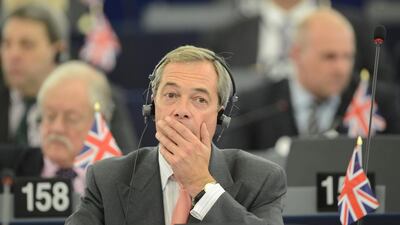One of the realities of modern day politics is that a small shift in voting behaviour can lead to monumental changes. It doesn't occur overnight, rather incrementally at first and then quite consequentially. Brexit is the most recognisable instance. The impact of so-called populists like Ukip's former leader Nigel Farage was not immediate but ultimately very strong. Slowly but surely, the consequences of the rise of populism are being felt. The fragmentation of political parties, especially in parliamentary systems, means populists who continue to represent a small minority can have a much louder voice and influence than was previously believed possible.
Last weekend, I was asked to take part in a debate on populism. The motion I was arguing for was that "the rise of populism is a dangerous thing for society". Populism is posing a threat to diverse societies and thriving on fears among the disenfranchised in a fast-changing world. Arguing against populism is not an endorsement of the current system, rather arguing against a political belief system focused on what needs to be taken down without proposing durable solutions. With historian Simon Schama as my debating partner, I felt we were on strong ground to convince our audience, participants in the Global Education and Skills Forum, of our position. Moreover, given that populists are strongly against the sentiments of a global citizenry and breaking down barriers, the audience was likely to be sympathetic to arguments against populists. At the beginning of the debate, held in a mock parliamentary chamber styled on the UK Houses of Parliament, the audience was asked to vote either with, against or as undecided on the motion. Sixty-seven per cent voted for the motion that the rise of populism is a dangerous thing for society, 14 per cent against and 19 per cent were undecided.
After slightly more than 30 minutes of debate and impassioned speeches, the debate concluded and the audience was asked to vote again. The results were somewhat surprising. Those concerned about populism’s impact on society remained at exactly 67 per cent, while the undecided dropped 5 points to 14 per cent, moving to join those in favour of populism. Those against the motion that "the rise of populism is a dangerous thing for society" rose to 19 per cent. So while the shift was only 5 per cent, and those against the motion represented less than 20 per cent of those voting, the results were significant. Firstly, it showed how a small swing can change the entire dynamic of a situation. Secondly, it paralleled the reality of how undecideds are moving against established norms and positions to more populist perspectives. Thirdly, and perhaps most importantly, this mock debate proved that the majority voice against populists is weaker despite maintaining its majority. The sheer fact that populist opinions are able to expand and attract new supporters, despite highlighting the dangers of populist surges, indicates that arguments warning of the ills of identity politics, and the need for more nuanced approaches are not enough to sway the undecideds. A 19 per cent vote was enough to declare the supporters of populism, UK member of parliament Robert Halfon and President and CEO of Harlem Children’s Zone, Geoffrey Canada, the victors. Their main argument was based on pointing out the flaws of various political entities and leaders, without arguing for durable solutions. That is the reality we are facing today – the rejection of established norms is popular among a small but influential group.
One of the challenges of tackling rising populism is the absence of a proper definition for it. Some would argue that populism is simply raising the concerns of "the people" – that being the ordinary person who does not yield power. However, that is a limited and misleading definition. Populism, especially in western liberal democracies, is tarnished with identity politics that aim to divide and exclude "the other". Moreover, the idea of populism as a stance against the establishment is flawed, seeing as the leader of populism in the United States is a millionaire who inherited his wealth and went on to win the White House on claims of being a populist. That reality has yet to dissuade the undecideds – and they will be the ones to determine whether populism will capture more wins, or remain confined to a small minority.


